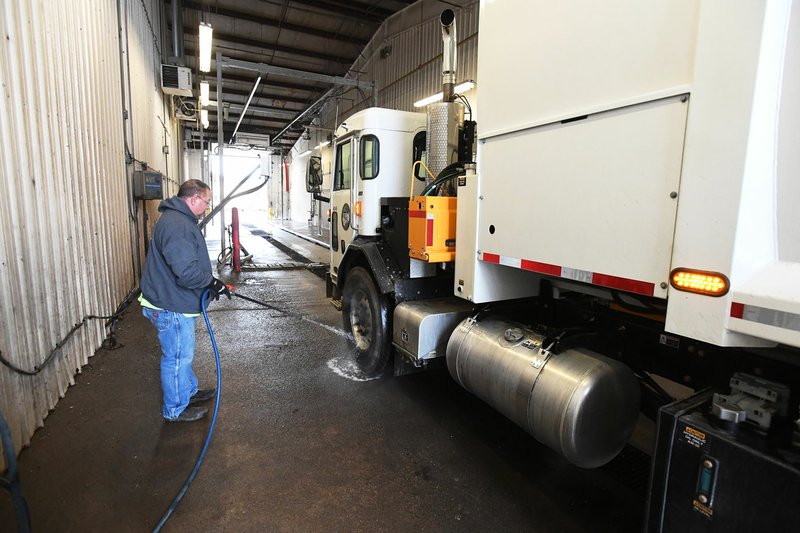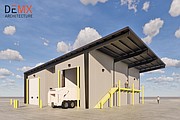FAYETTEVILLE -- The city has 700 vehicles, ranging from police cruisers to trash and recycling trucks, and they endure daily wear and tear.
It's important to keep them clean and in working order to lengthen their lifespans, according to the city's Fleet Department head. A new wash facility will help, she said.
Can't see the video above, click here.
City officials hope to break ground on the project in March. It should take six or seven months to complete, said Sara Glenn, fleet superintendent.
The facility has a $1.3 million budget. Most of the money, about $716,000, will go to site work, construction, electrical, plumbing and concrete. The City Council in April approved buying more than $500,000 in equipment. It also approved a $90,000 contract last summer with deMx Architecture to design the building.
The Fleet Department has an operating budget of about $9.3 million this year. Most of it, about $6 million, goes to replacing vehicles. The majority of vehicles and equipment have a life expectancy of six to 10 years, Glenn said. The department uses software tracking maintenance, age and mileage and then calculates the need to replace vehicles, she said.
About $2.4 million of the budget covers maintenance. Much of the work is preventative, such as oil changes, filters and brakes. Overhead, or the cost to have a trained staff available 24 hours a day, is about $725,000. Insurance charges are around $253,000.
The city's recycling and trash trucks get washed every day, Glenn said. Springdale, Rogers and Bentonville contract their recycling and trash services and don't have standalone fleet departments. The different departments of each city manage their own vehicles, spokeswomen for the cities said.
With such a large operation, Fayetteville's ability to keep vehicles clean has been largely inadequate, Glenn said.
"Fleet is here to make sure the other departments can do their operations as efficiently as possible," she said. "We are always researching what vehicles can move the operation faster, or move as many people, or do whatever job most efficiently."
Right now, fleet operators use three sites to keep vehicles clean.
There's a manual wash near the Parks and Recreation building on Happy Hollow Road. The Fleet Department's wash facility for large trucks is south of that on Armstrong Avenue. The city also has a contract with Portside Carwash on Huntsville Road to clean average-sized vehicles.
The manual wash near the parks building is inconvenient, Glenn said. The wash facility is made mostly of metal, which rusts, and breaks down frequently, she said. The cost to outsource washing vehicles has risen steadily over the years, she said.
The city has spent more than $26,500 repairing the wash facility since 2014, according to numbers Glenn provided. The annual cost to wash vehicles at Portside rose from $6,845 in 2014 to $13,100 last year. The number of vehicles rose from 618 in 2013 to 700 today.
The new wash will go on city land south of the animal shelter on Armstrong Avenue. It will accommodate vehicles of all sizes, keeping all wash duties in one location.
The investment will pay off, Glenn said. Aside from the savings associated with not having to regularly make repairs or outsourcing, the facility will be able to collect, treat and recycle water, she said.
Sloan Scroggin, chairman of the City Council's Equipment Committee, said the new facility will exemplify how the Fleet Department manages itself well, stretching dollars and keeping vehicles moving without interruption.
"The project in the long run will save the city money because properly cleaned fleet vehicles will last longer," he said. "We can also make sure the runoff is properly treated before it leaves our systems."
NW News on 02/10/2020


